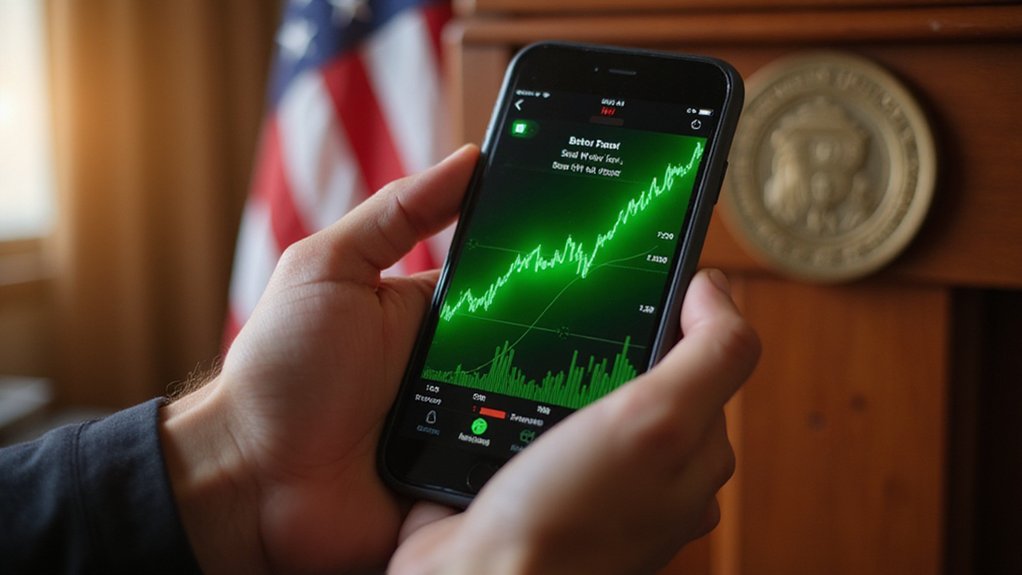Why would a desert emirate barely the size of Rhode Island emerge as the world’s most audacious challenger to traditional financial centers? Dubai‘s approval of tokenized money market funds represents a seismic shift that legacy institutions ignored at their peril—while London and New York debated regulatory frameworks, Dubai simply built one.
While financial giants deliberated in boardrooms, Dubai’s desert kingdom quietly architected tomorrow’s monetary infrastructure with characteristic audacity.
The Virtual Assets Regulatory Authority (VARA), established in 2022 with characteristic Emirati efficiency, has orchestrated what amounts to financial engineering on a national scale. By mandating thorough compliance for virtual asset service providers by mid-2025, Dubai created regulatory certainty that Manhattan’s finest legal minds still debate in committee rooms.
The emirate’s multi-tiered approach—VARA for Dubai proper, DFSA for the Dubai International Financial Centre, and SCA for broader UAE operations—demonstrates institutional sophistication that would impress Swiss bankers.
This tokenized money market fund approval signals more than regulatory approval; it represents the commoditization of traditional finance itself. When real estate, gold, and art can be tokenized with regulatory blessing, the distinction between physical and digital assets becomes a quaint anachronism. Companies in the UAE are already implementing tokenisation for various assets, including race horses, showcasing the breadth of digital asset innovation.
Dubai’s economic zones—DMCC, IFZA, ADGM, DWTC, and DAFZA—now function as specialized laboratories where blockchain companies experiment with financial products that would require years of regulatory navigation elsewhere. The DMCC Crypto Centre alone supports over 500 crypto businesses with comprehensive networking opportunities and essential resources.
The strategic brilliance lies in Dubai’s recognition that financial innovation follows regulatory clarity, not the reverse. By establishing minimum capital requirements, mandating robust cybersecurity measures, and implementing stringent anti-money laundering protocols, Dubai created an environment where crypto exchanges could innovate without regulatory uncertainty. This regulatory framework enables peer-to-peer exchanges without traditional banking intermediaries, fundamentally reshaping how financial services operate.
The emirate’s zero personal income tax and minimal corporate tax regimes merely sweetened an already compelling proposition.
Dubai’s leadership understood what established financial centers missed: disruption comes not from abandoning regulation but from reimagining it entirely. While traditional markets grappled with how to regulate digital assets, Dubai asked a more fundamental question—how should finance itself evolve?
The tokenized money market fund approval suggests they found their answer, transforming a desert trading post into tomorrow’s financial capital through bureaucratic audacity that would make Singapore envious.









